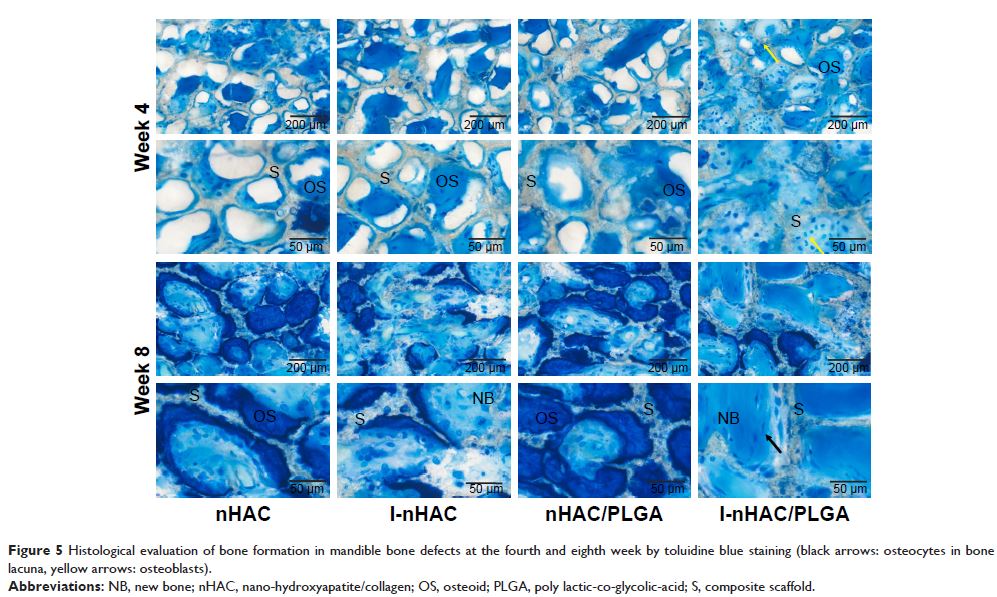108985
论文已发表
注册即可获取德孚的最新动态
IF 收录期刊
- 3.4 Breast Cancer (Dove Med Press)
- 3.2 Clin Epidemiol
- 2.6 Cancer Manag Res
- 2.9 Infect Drug Resist
- 3.7 Clin Interv Aging
- 5.1 Drug Des Dev Ther
- 3.1 Int J Chronic Obstr
- 6.6 Int J Nanomed
- 2.6 Int J Women's Health
- 2.9 Neuropsych Dis Treat
- 2.8 OncoTargets Ther
- 2.0 Patient Prefer Adher
- 2.2 Ther Clin Risk Manag
- 2.5 J Pain Res
- 3.0 Diabet Metab Synd Ob
- 3.2 Psychol Res Behav Ma
- 3.4 Nat Sci Sleep
- 1.8 Pharmgenomics Pers Med
- 2.0 Risk Manag Healthc Policy
- 4.1 J Inflamm Res
- 2.0 Int J Gen Med
- 3.4 J Hepatocell Carcinoma
- 3.0 J Asthma Allergy
- 2.2 Clin Cosmet Investig Dermatol
- 2.4 J Multidiscip Healthc

使用载有胰岛素的纳米羟基磷灰石/胶原/PLGA 复合支架增强骨再生
Authors Wang X, Zhang G, Qi F, Cheng Y, Lu X, Wang L, Zhao J, Zhao B
Received 4 September 2017
Accepted for publication 10 November 2017
Published 21 December 2017 Volume 2018:13 Pages 117—127
DOI https://doi.org/10.2147/IJN.S150818
Checked for plagiarism Yes
Review by Single-blind
Peer reviewers approved by Dr Alexander Kharlamov
Peer reviewer comments 2
Editor who approved publication: Dr Linlin Sun
Abstract: Insulin
is widely considered as a classical hormone and drug in maintaining energy and
glucose homeostasis. Recently, insulin has been increasingly recognized as an
indispensable factor for osteogenesis and bone turnover, but its applications
in bone regeneration have been restricted because of the short periods of
activity and uncontrolled release. In this study, we incorporated
insulin-loaded poly lactic-co-glycolic-acid (PLGA) nanospheres into
nano-hydroxyapatite/collagen (nHAC) scaffolds and investigated the bioactivity
of the composite scaffolds in vitro and in vivo. Bioactive insulin was
successfully released from the nanospheres within the scaffold, and the release
kinetics of insulin could be efficiently controlled by uniform-sized
nanospheres. The physical characterizations of the composite scaffolds
demonstrated that incorporation of nanospheres in nHAC scaffolds using this
method did not significantly change the porosity, pore diameters, and
compressive strengths of nHAC. In vitro, the insulin-loaded nHAC/PLGA composite
scaffolds possessed favorable biological function for bone marrow mesenchymal
stem cells adhesion and proliferation, as well as the differentiation into
osteoblasts. In vivo, the optimized bone regenerative capability of this
composite scaffold was confirmed in rabbit mandible critical size defects.
These results demonstrated successful development of a functional
insulin–PLGA–nHAC composite scaffold that enhances the bone regeneration
capability of nHAC.
Keywords: insulin, composite scaffold, drug delivery system, bone tissue
engineering
